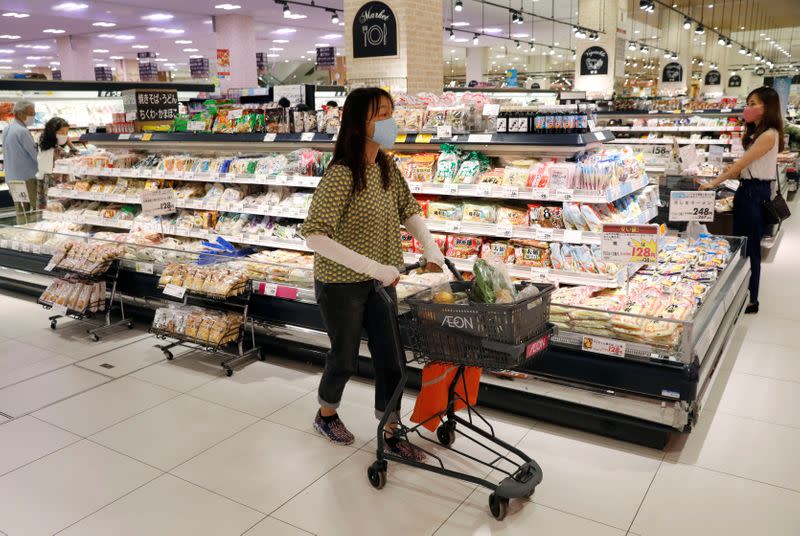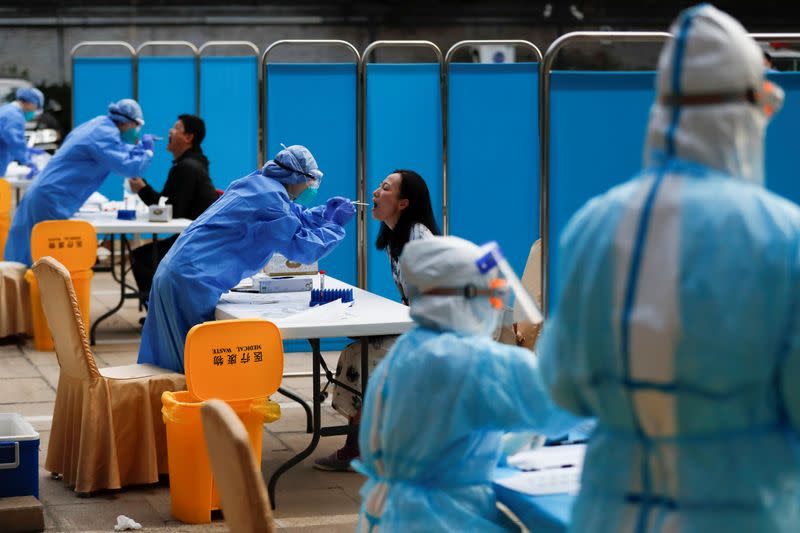What you need to know about the coronavirus right now
(Reuters) - Here's what you need to know about the coronavirus right now:
Vaccine booster plan
Britain's GlaxoSmithKline laid out plans on Thursday to produce 1 billion doses of vaccine efficacy boosters, or adjuvants, next year as the race to develop and produce a successful solution to the coronavirus crisis heats up.
The world's largest vaccine maker said it was in talks with governments to back a manufacturing expansion that would help to scale up production of future vaccines for COVID-19.
Adjuvants have been shown to create stronger and longer-lasting immunity against infections and allow for lower dosing of the protein in a vaccine, making way for higher-volume production. Experts have predicted that a successful vaccine will take more than a year to develop.
Second wave spectre
South Korea reported its third consecutive day of rising coronavirus cases on Thursday and the most new cases since April 5. At least 69 cases this week were linked to a cluster of infections at a logistics facility operated by an online shopping firm, in Bucheon, west of Seoul.
The spreading outbreak and warehouse closures come as e-commerce firms scramble to keep up with a surge in orders as more people opted to shop from home during the coronavirus outbreak.
Far cry from the typical MBA
This summer, dozens of incoming students at New York's Columbia Business School had planned to sail around Croatia for a week to get to know each other. Instead, they are chatting online and playing icebreaker games on Zoom.
Social gatherings like the sailing trip are on hold, and there is a good chance that when school starts in September, many classes and events at elite business schools like Columbia, Harvard and Wharton will be online.
It's a far cry from the typical MBA experience and some students are reconsidering the value of a degree that can cost upwards of $100,000 a year.
Rage against the machine
Lockdown bans on live performances have left many British musicians on the breadline, fuelling a campaign for them to get a bigger share of the profits from streaming their songs online.
"I'm getting contacted by lots of young artists who have millions of streams from 200,000 monthly listeners and don't make the minimum wage," musician Tom Gray from English indie band Gomez told Reuters.
Gray, whose platinum-selling band has racked up millions of plays on Spotify, has founded the Broken Record campaign to pressure the industry into doing more for musicians.
Gum, mints and snack bars
Impulse purchases - gum, mints and snack bars tossed into a shopping basket at the supermarket checkout line - are falling as more people get groceries delivered or pick them up curbside.
U.S. sales of mints are down 30 percent year-on-year at stores tracked by market researcher Nielsen in the 11 weeks to May 16, while sales of gum are down 28 percent.
(Compiled by Karishma Singh and Nick Tattersall; Editing by Kirsten Donovan)


